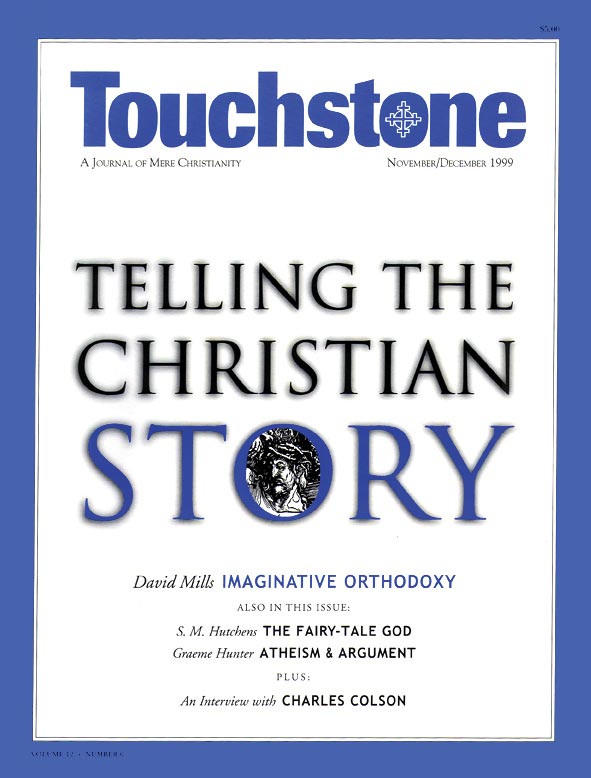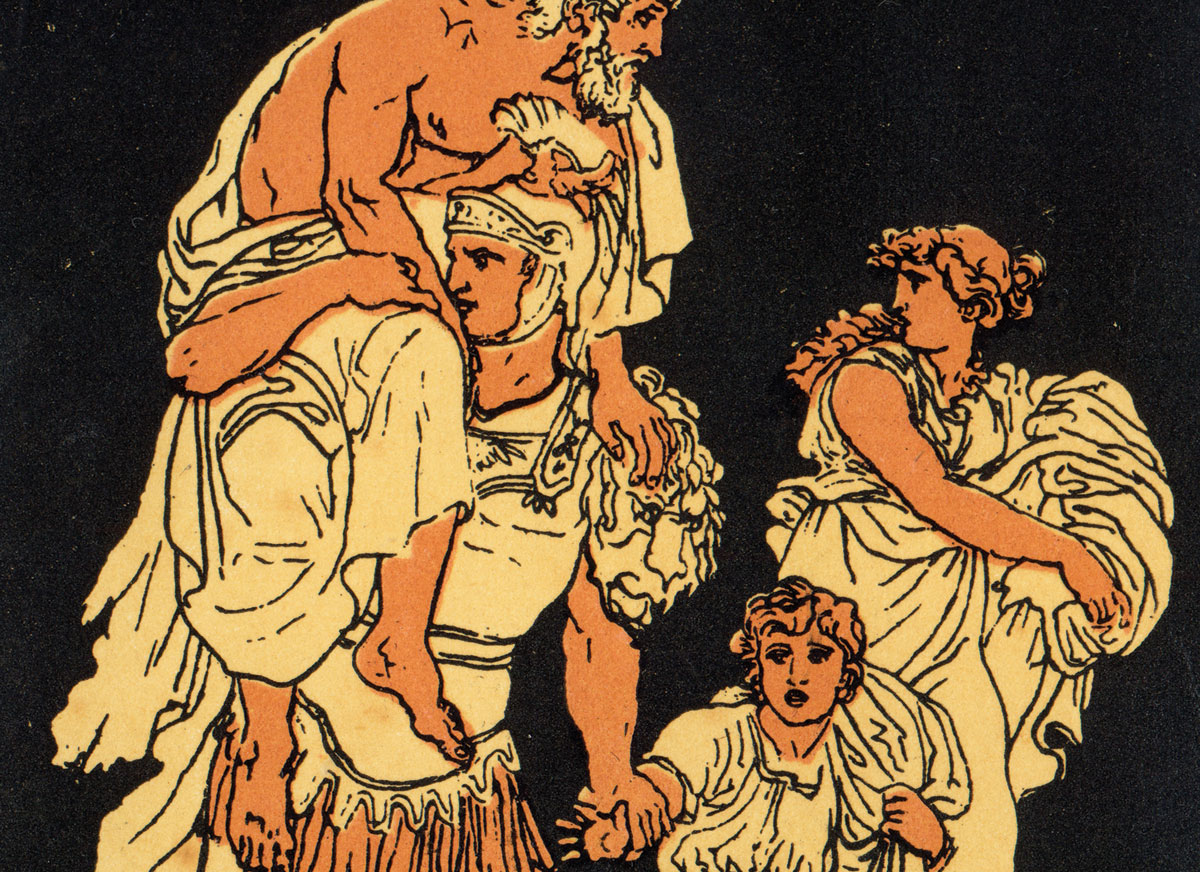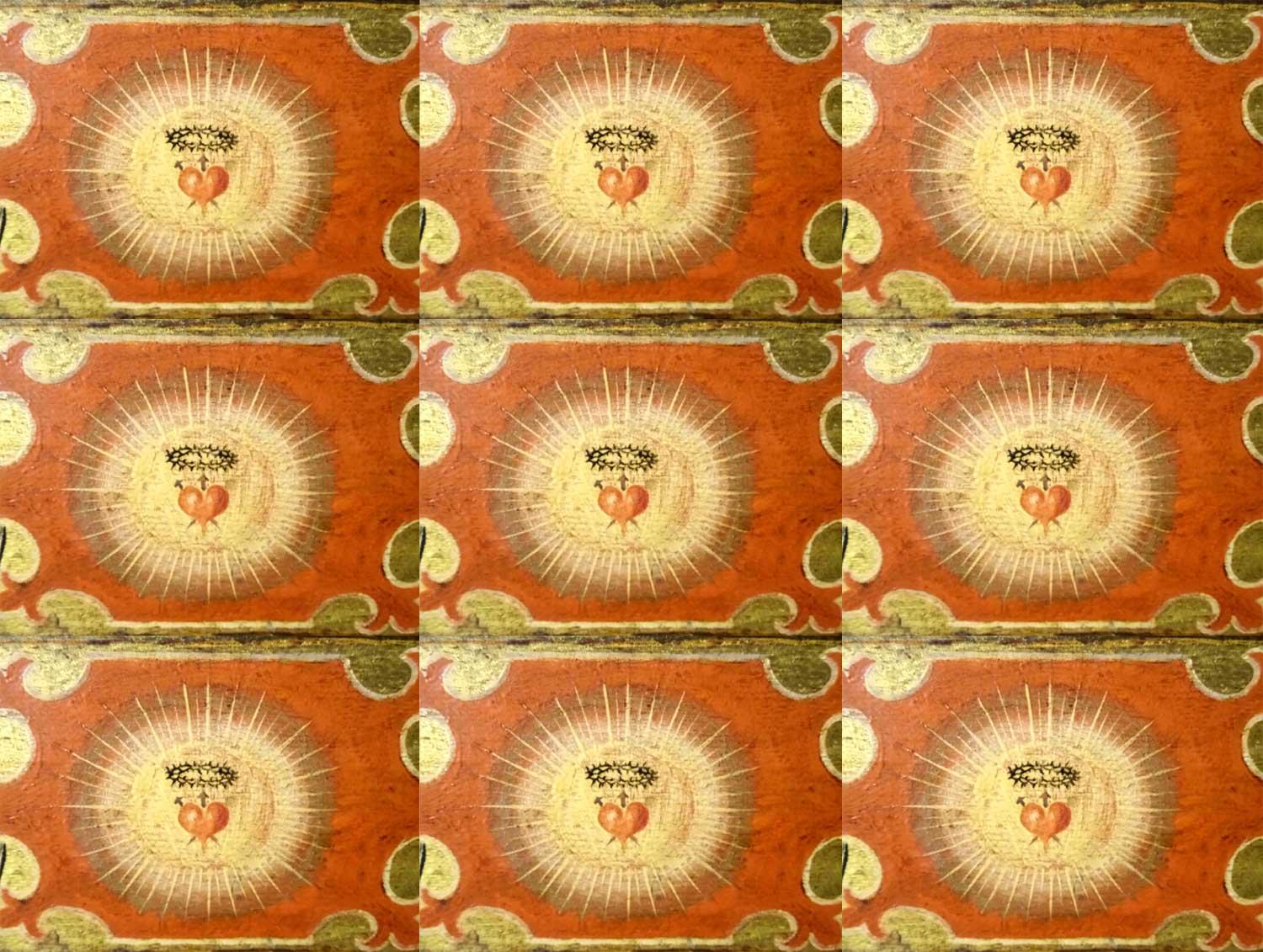Atheism & Argument
The Attraction & Poverty of Disbelief
by Graeme Hunter
Like great beauties, the classic formal arguments for the existence of God are hard to treat fairly. Overrated for several centuries and neglected today, perhaps their most effective use is neither to convert the heathen nor to refute the atheist, but to comfort and strengthen the believer. They are able at least to keep us from doing anything foolish in weak moments when atheism’s false economy compels us.
Atheism’s most attractive intellectual attribute is indeed its economy—its metaphysical simplicity. This it achieves by discarding the troublesome concept of God. Candid Christians will admit that it is not always easy to justify or defend the ways of God, and most of us can recall situations in which we have envied atheists the apparent conceptual economy of their position. They appear to be defending so much less than we are and, therefore, to be exposed to fewer intellectual pitfalls.
Sometimes in their own mythologies they see themselves as intellectual ascetics, as lean, mean men of the mind, and at times they can easily seem to us to be just so. For example, when the mystery of evil is raised and the question arises of how it can be compatible with the existence of a loving God, the atheist is able to wave the problem aside, since he supposes no such benevolent deity in the first place. Or again, if there is a question about the meaning of Genesis or its compatibility with contemporary biology, he will dismiss it with characteristic urbanity, since to him the Bible is nothing but a collection of tales, edifying at best, superstitious at worst.
Atheism is attractive in the same way skepticism is, for it entails at the least skepticism about God. Like the skeptic, the atheist seems to conserve his intellectual energies, to commit himself only to the incontrovertible. In the mirror of this atheistic economy, Christian believers may come to see themselves as quixotic defenders of the indefensible. As we wrestle with God, we sometimes envy those who seem to have no opponent.
In a similar way a man fighting to meet his mortgage payments may look wistfully at those who only rent, or a woman struggling to raise and educate a family may wonder whether childlessness might not be the more blessed state after all. When we find ourselves with scant rights and heavy obligations, we sometimes would consider changing places with those who seem to bear lighter loads.
But the operative words in these cases are “sometimes” and “seem.” Men with mortgages, like women with children, were not born in that condition. In most cases they got there by choice, because they were unsatisfied with the simpler state when they were in it. The man without a house may have been oppressed by his rootlessness; the childless woman may have felt spiritually, as well as physically, barren. Both of them recognized in different ways that life was inviting them to a deeper engagement with it than they had yet made.
It is true that by responding to that invitation they have accepted responsibilities that could have been avoided and that sometimes seem overwhelming, but the acceptance also has brought them satisfactions that their earlier state could by no means have conferred. When our burdens are uppermost in our mind, it can seem as if the move toward deeper engagement with life was a bad one. In such cases, however, it usually suffices to examine the alternative to be reconciled once again to our more demanding but also more fulfilling course of life. To surrender the house, to give up the children, would rescue us from onerous commitments, but only at the cost of impoverishing our lives. At least in the everyday matters of home and children, a candid comparison of the relative advantages of a full life over one of less responsibility usually suffices to make our burdens precious to us once again.
Such homely parables shed a suggestive light on religious belief and its opposite. They raise the possibility that the economy achieved by the atheist is likewise a false and impoverished one. To establish this suggestion as a fact, however, no exercise is more profitable than to reconsider the historic proofs of God’s existence, which too many Christians dismiss too quickly as mere mental puzzles, fit only for the undergraduate curriculum.
The First Cause Argument
Graeme Hunter is a contributing editor to Touchstone and Research Professor of Philosophy at Dominican University College in Ottawa. He is the author of Radical Protestantism in Spinoza's Thought (Ashgate).
bulk subscriptions
Order Touchstone subscriptions in bulk and save $10 per sub! Each subscription includes 6 issues of Touchstone plus full online access to touchstonemag.com—including archives, videos, and pdf downloads of recent issues for only $29.95 each! Great for churches or study groups.
Transactions will be processed on a secure server.
more from the online archives
calling all readers
Please Donate
"There are magazines worth reading but few worth saving . . . Touchstone is just such a magazine."
—Alice von Hildebrand
"Here we do not concede one square millimeter of territory to falsehood, folly, contemporary sentimentality, or fashion. We speak the truth, and let God be our judge. . . . Touchstone is the one committedly Christian conservative journal."
—Anthony Esolen, Touchstone senior editor











